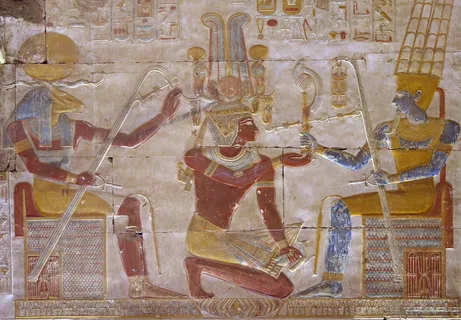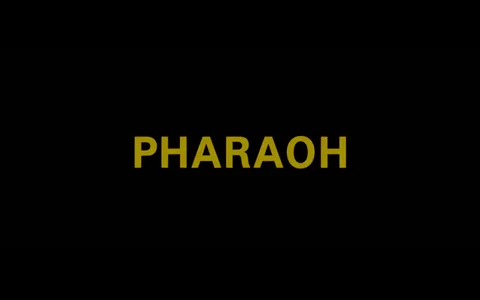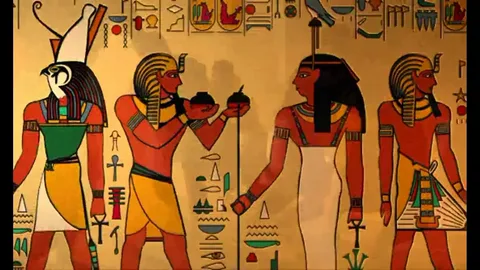In the rich tapestry of Islamic teachings, few figures captivate the imagination as profoundly as the pharaohs mentioned in the Quran. in This article on Arabian Tongue website we will delves into the historical context, theological perspectives, and symbolic meanings associated with the pharaoh in quran, offering a nuanced exploration of their significance.
Historical Context

To comprehend the essence of the pharaoh in the Quran, one must journey back to the annals of ancient Egypt. The once-mighty civilization, with its towering pyramids and intricate hieroglyphs, sets the stage for the captivating story that unfolds in the sacred verses.
Pharaohs in Islamic Tradition
In Islamic tradition, the term “pharaoh” is often used to refer to the oppressive and tyrannical rulers who opposed the prophets and oppressed their people. While the term itself is not exclusive to Islamic tradition and is rooted in ancient Egyptian history, it has been adopted and adapted in Islamic teachings to convey moral and spiritual lessons.
The Quran, which is the holy book of Islam, mentions the story of the Prophet Moses (Musa in Arabic) and his confrontation with Pharaoh. Pharaoh, in this context, represents arrogance, disbelief, and oppressive leadership. The Quranic narrative emphasizes the struggle between truth and falsehood, as well as the eventual triumph of God’s guidance.
In various verses, Pharaoh is portrayed as a symbol of arrogance and rebellion against God. For example, in Surah Al-Qasas (28:38), it is mentioned:
“And Pharaoh said, ‘O assembly [of eminent ones], I have not known you to have a god other than me. Then ignite for me, O Haman, [a fire] upon the clay and make for me a tower that I may look at the God of Moses. And indeed, I do think he is among the liars.'”
This arrogance and refusal to accept the message of God’s prophets lead to Pharaoh’s ultimate downfall, as recounted in the Quran. The story serves as a moral lesson for believers, warning against the dangers of pride, disobedience to God, and the oppression of others.
The concept of the “pharaoh” in Islamic tradition is not limited to the historical figure from ancient Egypt but is used more broadly to symbolize any tyrannical ruler or oppressive regime that opposes God’s guidance and mistreats its people. Islamic teachings emphasize justice, compassion, and submission to God, and the stories of prophets and their struggles against oppressive leaders serve as timeless lessons for believers.
pharaoh in quran
The Quran contains several verses that mention Pharaoh, the ruler of ancient Egypt who opposed the Prophet Moses (Musa in Arabic). Pharaoh is often used as an example of arrogance, tyranny, and disbelief in the face of God’s signs. Here are some Quranic verses that refer to Pharaoh:
Pharaoh’s Opposition to Moses
Surah Al-Qasas (28:4-6): “Indeed, Pharaoh exalted himself in the land and made its people into factions, oppressing a sector among them, slaughtering their [newborn] sons and keeping their females alive. Indeed, he was of the corrupters. And We wanted to confer favor upon those who were oppressed in the land and make them leaders and make them inheritors, And establish them in the land and show Pharaoh and [his minister] Haman and their soldiers through them that which they had feared.”
Moses and Aaron’s Mission:
-
- Surah Ta-Ha (20:24-26): “[Moses] said, ‘He says, “Your Lord is the Most Gracious, so follow me and obey my command.”‘”
- Surah Ta-Ha (20:43-48): These verses narrate the conversation between Moses and Pharaoh, where Moses is sent by God to deliver a message to Pharaoh to worship the one true God.
Pharaoh’s Arrogance:
Surah Az-Zumar (39:49): “Say, ‘O My servants who have transgressed against themselves [by sinning], do not despair of the mercy of Allah. Indeed, Allah forgives all sins. Indeed, it is He who is the Forgiving, the Merciful.'”
Pharaoh’s Drowning
Surah Yunus (10:90-92): “And We took the Children of Israel across the sea, and Pharaoh and his soldiers pursued them in tyranny and enmity until, when drowning overtook him, he said, ‘I believe that there is no deity except that in whom the Children of Israel believe, and I am of the Muslims.'”
These verses highlight the narrative of the conflict between Moses and Pharaoh, with Pharaoh’s eventual downfall and acknowledgment of God’s existence coming too late. The story serves as a lesson about the consequences of arrogance, disobedience, and rejection of divine guidance.
Read about: birth of prophet muhammad
Symbolic Meaning

Beyond the historical account, the pharaoh in Islamic teachings assumes a symbolic role. A symbol of arrogance and obstinacy, pharaoh becomes a cautionary tale, urging believers to reflect on the consequences of pride and disobedience.
Pharaoh as an Arrogant Ruler
The Quran paints a vivid picture of pharaoh’s arrogance, a trait that leads to his downfall. This portrayal serves as a timeless lesson, warning against the perils of unchecked pride and the refusal to acknowledge divine guidance.
Theological Perspectives
Diverse theological interpretations exist regarding the pharaoh narrative. Some view it as a historical account, while others delve into the allegorical dimensions, unlocking layers of spiritual insight. These perspectives shape the understanding of believers worldwide.
Read more: where does the quran come from
Archaeological Evidence
The intersection between Quranic narratives and archaeological discoveries adds a fascinating dimension to the pharaoh story. Recent findings in ancient Egypt provide glimpses into the historical reality that underlies the Quranic verses.
Cultural References
The influence of the pharaoh narrative extends beyond religious circles, permeating Islamic culture. Artistic representations, literature, and even popular culture often draw inspiration from this ancient tale, embedding it in the collective consciousness.
Comparative Analysis
A comparative analysis reveals intriguing parallels and distinctions between the Quranic account and other historical or religious narratives mentioning pharaohs. This exploration sheds light on the interconnectedness of diverse cultural and religious traditions.
Perplexity in the Pharaoh Narrative
The pharaoh narrative, while compelling, is not without its perplexities. Different interpretations and varied historical perspectives create a tapestry of complexity, inviting believers to engage in thoughtful reflection.
Recommend: what calendar do muslim use
FAQs
Why is the pharaoh mentioned in the Quran considered a symbol of arrogance?
The Quran portrays the pharaoh as an arrogant ruler who defied divine guidance, serving as a cautionary example against pride and disobedience.
How do different theological perspectives interpret the pharaoh narrative?
Various theological perspectives exist, ranging from viewing it as a historical account to exploring allegorical dimensions that offer spiritual insights.
What archaeological evidence supports the existence of pharaohs in ancient Egypt?
Recent archaeological findings in ancient Egypt provide tangible evidence that aligns with the historical context mentioned in the Quranic verses.
How does the pharaoh narrative impact contemporary Islamic culture?
The pharaoh narrative influences Islamic culture through artistic representations, literature, and cultural references that draw inspiration from this ancient tale.
What is the burstiness in Quranic verses, and how does it enhance the pharaoh narrative?
Burstiness refers to the vivid and detailed language in Quranic verses, particularly those depicting encounters between Moses and pharaoh. This burst of descriptive power enhances the immersive impact of the narrative.
Conclusion
In conclusion, the pharaoh in the Quran is more than a historical figure; it is a timeless archetype embodying profound lessons and moral truths. The narrative’s endurance across centuries underscores its enduring relevance and significance in shaping Islamic understanding.


